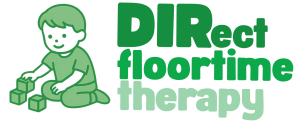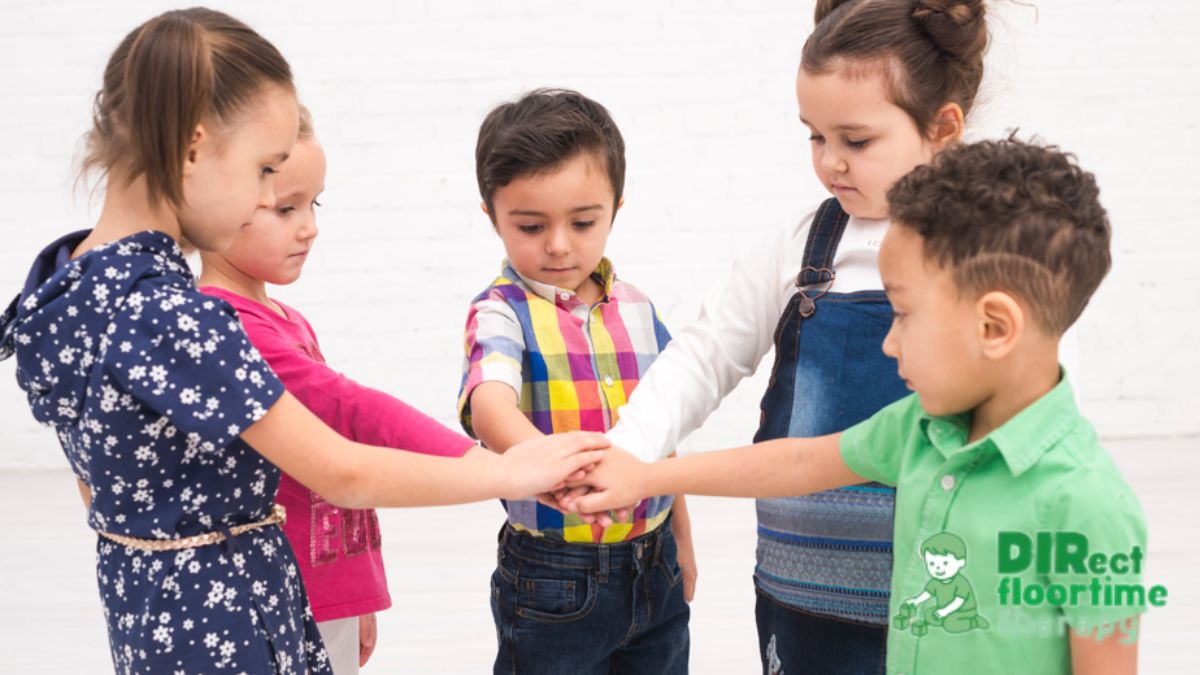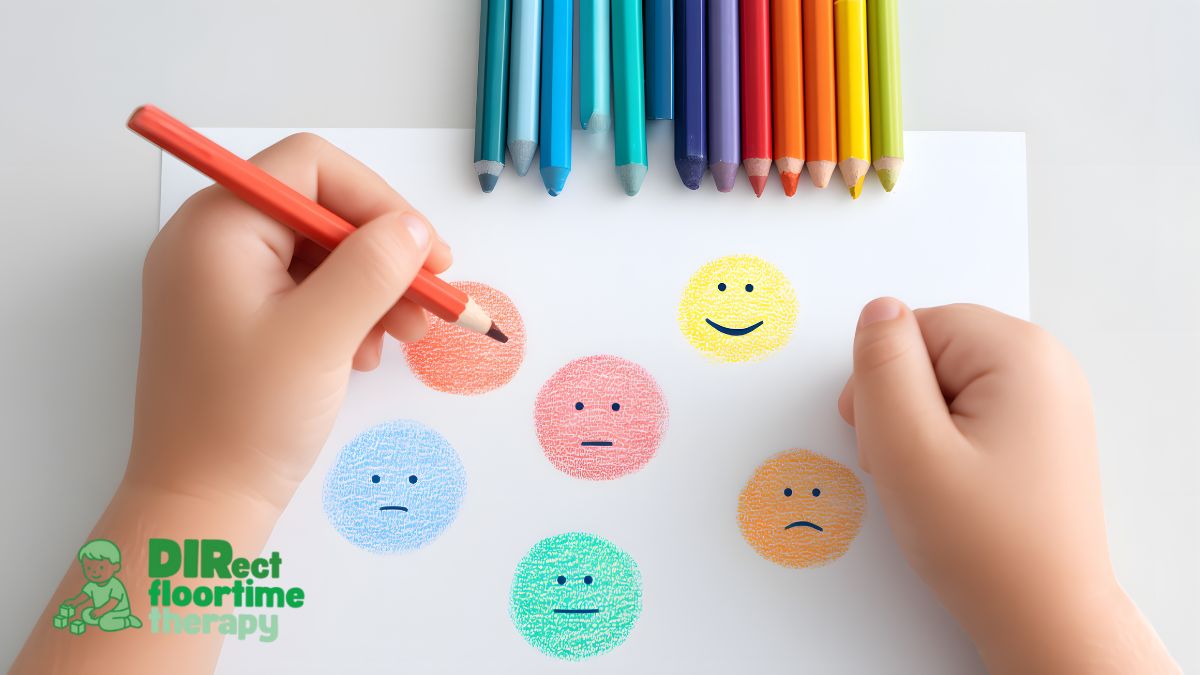Key Points:
- Build your child’s confidence through structured social skills therapy.
- Practice real-life interactions with role-playing, games, and guided exercises.
- Strengthen communication, empathy, and lifelong social growth.
Navigating social interactions can feel overwhelming for many kids. Some struggle with body language, others miss nonverbal cues, while others face challenges from conditions like anxiety or autism spectrum disorder. These hurdles can affect confidence and make it harder to form friendships. Is your child having a hard time connecting with others or understanding social cues? Social skills counseling may be the answer. This therapy builds communication and emotional strength through structured guidance. Children practice step by step until socializing feels natural. By learning in a safe, supportive space, they gain tools that last a lifetime. From role-playing to technology-based exercises, therapy gives children the chance to succeed both in school and in life.
Understanding Why Kids Struggle Socially
Not every child naturally develops social ease—some need extra support. Challenges may stem from conditions like autism spectrum disorder, ADHD, or social anxiety, but even children without a diagnosis can feel isolated if they lack group experiences. Recognizing these struggles early is crucial. Many issues that affect quality of life are preventable or manageable with timely support, and social growth is no exception. Spotting the signs early can open the door to lasting success.
Signs Your Child Might Be Struggling Socially
Look for patterns in behavior rather than one-off moments. Common signs include:
- Trouble starting or joining conversations
- Difficulty understanding humor or emotions
- Preferring solo play over group activities
- Missing jokes or sarcasm because they take things too literally
- Avoiding eye contact or fidgeting in group settings
- Withdrawing during family events or school playtime
If these sound familiar, therapy can provide structured support before struggles deepen.
Common Causes of Social Challenges
Social challenges usually stem from two areas:
- Developmental conditions—Autism often makes reading nonverbal cues harder. ADHD can bring impulsivity or poor focus.
- Emotional challenges—Social anxiety makes group settings feel overwhelming.
Environmental factors also play a role. A child who hasn’t had many group play opportunities may simply need more guided practice. Understanding the “why” helps match your child with the right therapy method.
The Role of Therapy in Social Growth
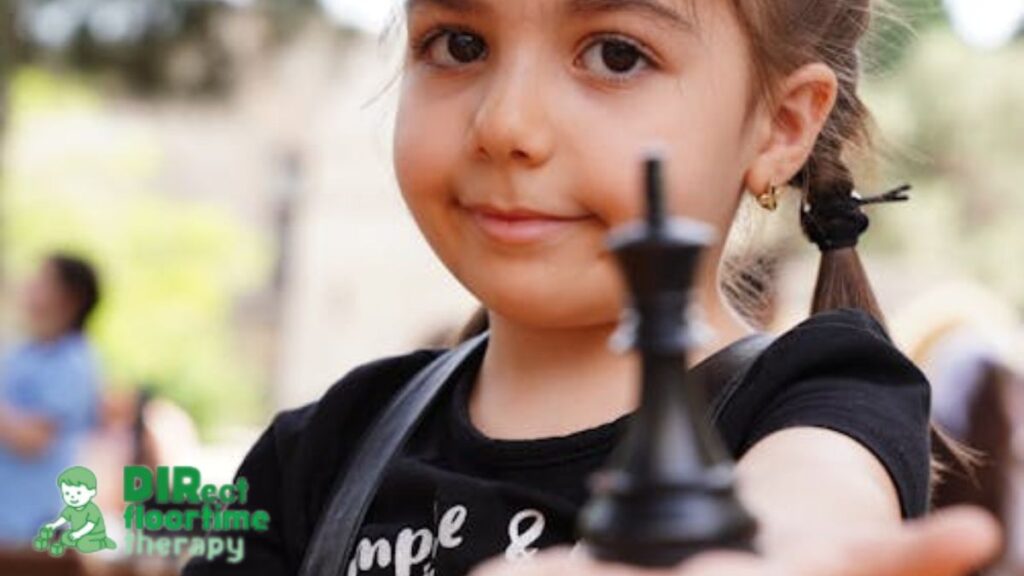
Therapy builds confidence by breaking down social learning into simple steps. Instead of pushing children into overwhelming situations, therapists use tools like role-play, games, and structured conversation. Over time, kids practice emotional control, active listening, and conflict resolution in safe settings. Studies show that consistent therapy not only reduces anxiety but also improves long-term communication.
Socialization Therapy
Socialization therapy focuses on real-world practice. Children learn through fun, structured activities such as:
- Group storytelling to encourage turn-taking
- Board games that teach patience and rule-following
- Puppet shows that act out social cues
A randomized controlled trial published in Arts in Psychotherapy (2023) found that children receiving psychomotor-based group therapy improved significantly in socially competent behavior (effect size r = .57, considered large). This proves that structured group-based interaction works.
Social Skills Training Therapy: List of Techniques
Social skills training therapy uses proven techniques to help kids build step-by-step confidence.
- Exposure Therapy: Gradually introducing children to new social situations.
- Play Therapy: Teaching turn-taking and sharing through play.
- Role-Playing: Practicing greetings, conversations, and problem-solving.
- Cognitive Behavioral Therapy (CBT): Replacing negative thoughts with positive strategies.
Text Table: Common Techniques and Their Benefits
| Technique | What It Teaches | Example Activity |
| Exposure Therapy | Comfort in new settings | Starting small talk at lunch |
| Play Therapy | Sharing and cooperation | Building towers together |
| Role-Playing | Conflict resolution & empathy | Acting out playground drama |
| CBT | Reframing anxious thoughts | “What’s the best that could happen?” exercise |
Each social skills therapy works best when personalized to the child’s needs.
Social Emotional Therapy: Real-Life Examples
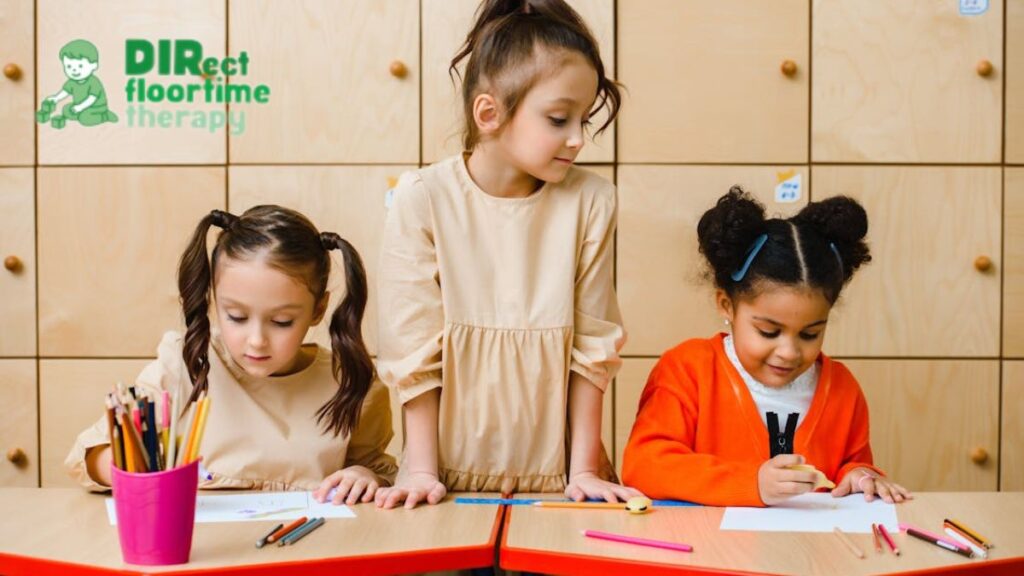
Social emotional therapy helps kids recognize feelings and use them in healthy ways. It’s not only about talking but also about connecting emotions to actions.
Here are real-world examples:
- Emotion Express Charades – Kids act out different emotions silently while peers guess the feeling. Builds empathy, emotional recognition, and nonverbal communication skills.
- Chat Tower Jenga – Each block has a prompt like “Share a proud moment.” Children answer when they pull a block, practicing turn-taking, active listening, and personal storytelling.
- Compliment Circle Exchange – Sitting in a circle, children give sincere compliments to peers, boosting self-esteem, fostering kindness, and creating a supportive environment.
- Personalized Social Narratives—Tailored stories model real-life social situations using simple language and pictures, helping children understand norms and expectations.
- Feeling Match Cards – Kids match facial expression cards to scenarios, enhancing emotion recognition and encouraging empathy for others’ feelings.
- Interactive Role-Play – Practicing greetings, conflict resolution, or introductions builds confidence and prepares children for real-world interactions.
- Collaborative Team Challenges—Collaborative tasks like puzzles or towers teach communication, cooperation, and problem-solving in group settings.
- Turn-Based Game Fun – Classic games teach patience, fair play, and handling wins and losses gracefully while reinforcing social rules.
- Mood Meter—A visual tool helps children identify and communicate feelings, laying the groundwork for self-regulation strategies.
- Listening Games—Children follow verbal instructions or answer story-based questions to strengthen attention, comprehension, and active listening.
- Empathy Masks—Using masks or props, kids act out different viewpoints, boosting empathy and understanding of others’ emotions.
- Friendship Craft Exchange – Creating and exchanging bracelets encourages sharing, conversation, and bonding through tangible acts of kindness.
- Collective Storybuilding—Children collaboratively build a story, practicing turn-taking, flexibility, and creative communication.
- Emotion Sorting Activity – Sorting pictures or objects by feelings develops emotion recognition and sparks discussion about appropriate responses.
- Decision Dilemma Cards – Social dilemmas encourage problem-solving, reflection, and conflict resolution skills.
- Reflection Mirror Game – Children mimic each other’s movements, strengthening attention to nonverbal cues and social connection.
- Greeting Practice Relay – A fun, fast-paced relay practicing greetings builds confidence and comfort initiating interactions.
- Community Social Trips—Trips to playgrounds or libraries help generalize social skills in real-life settings.
- Calm-Down Toolbox – Personalized kits with calming tools teach self-regulation and emotional resilience.
- Affirmation Poster Creations – Designing affirmations promotes self-advocacy, motivation, and coping strategies.
Research from Child Development shows that children who engage in emotional regulation activities at school display stronger peer relationships and better classroom performance.
Role of Technology in Therapy
Digital tools now expand therapy beyond the clinic. Video modeling lets kids watch and copy positive behaviors. Interactive apps turn social practice into games. For example, children can practice greetings or eye contact in safe, animated simulations before trying in real life. This blended approach—technology plus traditional therapy—keeps kids engaged while building transferable skills.
Preparing Your Child for Therapy
Parents play a big part in success. Here’s how you can help:
- Have open talks about why social growth matters.
- Set small, realistic goals such as practicing eye contact.
- Encourage practice at home through family games or daily conversation.
Consistency between home and therapy boosts results.
Measuring Progress in Therapy
Progress looks different for every child. Some improve eye contact within weeks. Others slowly gain confidence in groups. Signs of improvement include:
- Starting conversations without prompting
- Reduced anxiety in group settings
- Positive feedback from teachers and peers
Celebrate small wins. Confidence builds in layers, not leaps.
Long-Term Benefits of Consistent Therapy
Children who stay in therapy show:
- Greater emotional control
- Improved academic performance
- Stronger peer and family relationships
These skills don’t fade—they support children throughout school, friendships, and even future workplaces.
Social Skills Training: Pros and Considerations
Like any approach, social skills training therapy has strengths and cautions.
Pros
- Builds confidence in real-life situations
- Improves empathy and communication
- Lowers social anxiety
Considerations
- Methods must fit the child’s personality.
- Training should never force children to hide natural coping behaviors unless harmful.
The right therapist focuses on inclusion, celebrating individuality while teaching connection.
How to Improve Social Skills in a Child (FAQ)
1. Can my child outgrow social challenges without therapy?
Some children do improve naturally. But therapy speeds up growth and gives them tools they might not pick up on their own. Early support prevents struggles from becoming habits.
2. What makes social behavior therapy different from school activities?
School offers group settings, but social behavior therapy uses structured, research-based methods. Instead of hoping children “figure it out,” therapists guide them through proven steps.
3. Can online sessions help if my child is shy in person?
Yes. Socialization therapy can happen virtually. Kids practice greetings, eye contact, and digital manners in safe, online settings, which then translate to in-person confidence.
4. How can I support social skills training therapy at home?
Try simple games. Emotion charades for feelings, rolling a ball for turn-taking, or practicing small talk at dinner. Daily practice complements what they learn in sessions.
5. What’s the role of peers in social-emotional therapy?
Peers act as “practice partners.” When children role-play emotions with friends, they learn empathy in action. These interactions create real change that solo practice can’t achieve.
Building a Brighter Social Future for Your Child
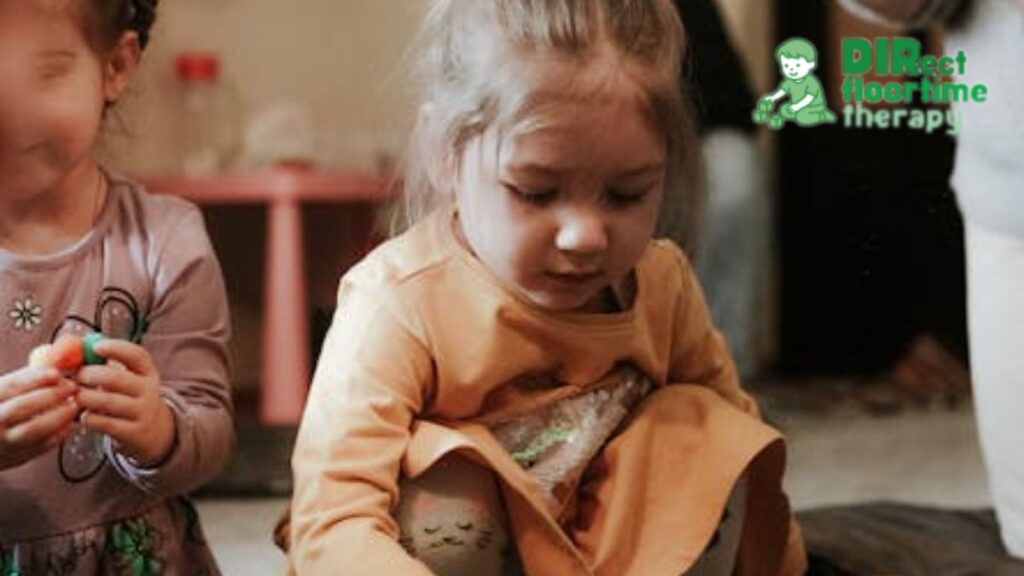
Helping your child with social growth is one of the best investments you can make in their future. With early action, tailored therapy, and family support, children learn how to connect with others in meaningful ways. Approaches like role-playing games, emotional practice, and Direct Floortime Therapy offer structured yet fun ways for kids to build skills step by step. Over time, they don’t just learn how to talk to others—they learn how to thrive.For families in Central Jersey, support is closer than you think. Many children benefit from therapies designed to meet them where they are, whether that’s through Direct Floortime Therapy, social skills counseling, or a combination of strategies. If you’re ready to give your child the tools they need for lasting confidence, reach out to us today. Together, we can guide your child toward stronger connections and a brighter tomorrow.
